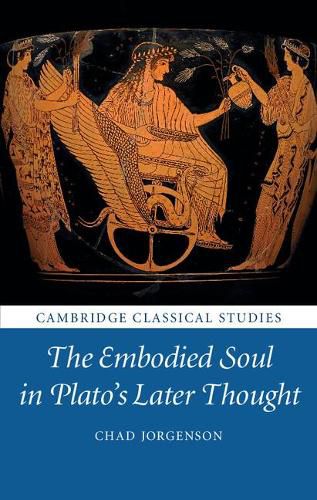Readings Newsletter
Become a Readings Member to make your shopping experience even easier.
Sign in or sign up for free!
You’re not far away from qualifying for FREE standard shipping within Australia
You’ve qualified for FREE standard shipping within Australia
The cart is loading…






In this book, Chad Jorgenson challenges the view that for Plato the good life is one of pure intellection, arguing that his last writings increasingly insist on the capacity of reason to impose measure on our emotions and pleasures. Starting from an account of the ontological, epistemological, and physiological foundations of the tripartition of the soul, he traces the increasing sophistication of Plato’s thinking about the nature of pleasure and pain and his developing interest in sciences bearing on physical reality. These theoretical shifts represent a movement away from a conception of human happiness as a purification or flight of the soul from the sensible to the intelligible, as in the Phaedo, towards a focus on the harmony of the individual as a psychosomatic whole under the hegemonic power of reason.
$9.00 standard shipping within Australia
FREE standard shipping within Australia for orders over $100.00
Express & International shipping calculated at checkout
In this book, Chad Jorgenson challenges the view that for Plato the good life is one of pure intellection, arguing that his last writings increasingly insist on the capacity of reason to impose measure on our emotions and pleasures. Starting from an account of the ontological, epistemological, and physiological foundations of the tripartition of the soul, he traces the increasing sophistication of Plato’s thinking about the nature of pleasure and pain and his developing interest in sciences bearing on physical reality. These theoretical shifts represent a movement away from a conception of human happiness as a purification or flight of the soul from the sensible to the intelligible, as in the Phaedo, towards a focus on the harmony of the individual as a psychosomatic whole under the hegemonic power of reason.